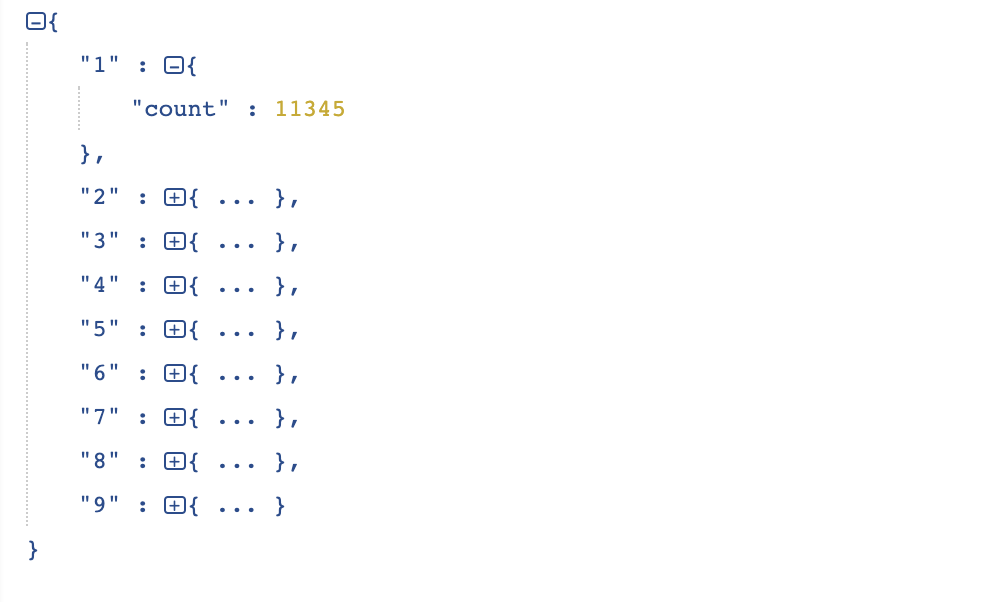Script developers are quick to reach for the Switch() directive in javascript. This is considered better than IF() statements for many reasons, but this is not specific to Airtable scripting; Switch() is used in all flavours of javascript and it’s a bit faster than evaluating IF() statements.
But just as Switch() is a better alternative to IF(), JSON may be a better alternative to Switch().
Consider the requirements of my Benford’s example.
- Traverse every record to capture the first digit in the values of a target numeric field.
- Count the instances where the first digit is 1 through 9.
This is a simple aggregation and one might perform the classification of the counts using a Switch() statement - one case for each count. This requires - among other things, ten variables to accumulate the counts and a Switch() statement to perform the counts. No engineer could be blamed for concluding this approach.
Alternative…
The alternative is just one variable; a JSON object that will ultimately contain the 10 classes of counts defined like this:
let benfordCounts = {};
Iterating across 30,000 records and aggregating while classifying the counts requires just one line of code.
benfordCountsCthisDigit] = (benfordCountsCthisDigit] === undefined) ? {"count" : 1} : {"count" : benfordCountsCthisDigit].count + 1};
When the dust settles (in about 1200 milliseconds) it leaves us with this object which looks a lot like a Switch() statement, right? But, unlike a Switch() statement, it is portable, searchable, can be evaluated, and even embellished with new data.

We tend to assume JSON objects are simply for data payloads, but they can be employed in a variety of ways to enhance code and in many cases eliminate lots of code while creating simple approaches that perform very fast.
